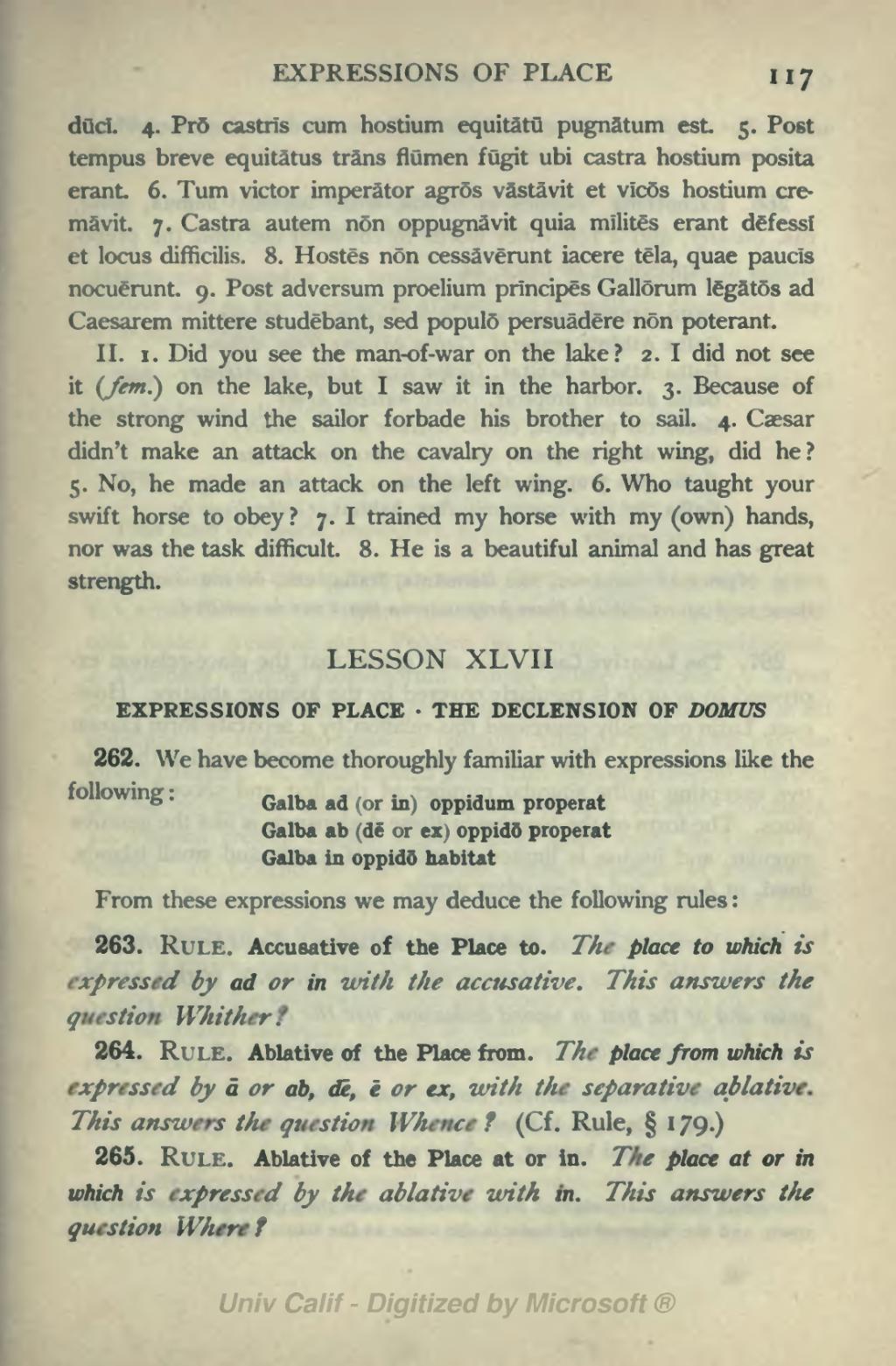EXPRESSIONS OF PLACE II7
dūcī.
- Prō castrīs cum hostium equitātū pugnātum est.
- Post tempus breve equitātus trāns flūmen fūgit ubi castra hostium posita erant.
- Tum victor imperātor agrōs vāstāvit et vīcōs hostium cremāvit.
- Castra autem nōn oppugnāvit quia mīlitēs erant dēfessī et locus difficilis.
- Hostēs nōn cessāvērunt iacere tēla, quae paucīs nocuērunt.
- Post adversum proelium principēs Gallōrum lēgātōs ad Caesarem mittere studēbant, sed populō persuādēre nōn poterant.
II.
- Did you see the man-of-war on the lake?
- I did not see it (fem.) on the lake, but I saw it in the harbor.
- Because of the strong wind the sailor forbade his brother to sail.
- Cæsar didn´t make an attack on the cavalry on the right wing, did he?
- No, he made an attack on the left wing.
- Who taught your swift horse to obey?
- I trained my horse with my (own) hands, nor was the task difficult.
- He is a beautiful animal and has great strength.
LESSON XLVII
EXPRESSIONS OF PLACE • THE DECLENSION OF DOMUS
262. We have become thoroughly familiar with expressions like the following:
|
Galba ad (or in) oppidum properat Galba ab (dē or ex) oppidō properat Galba in oppidō habitat |
From these expressions we may deduce the following rules:
263. Rule. Accusative of the Place to. The place to which is expressed by ad or in with the accusative. This answers the question Whither?
264. Rule. Ablative of the Place from. The place from which is expressed by ā or ab, dē, ē or ex, with the separative ablative. This answers the question Whence? (Cf. Rule, § 179.)
265. Rule. Ablative of the Place at or in. The place at or in which is expressed by the ablative with in. This answers the question Where?
